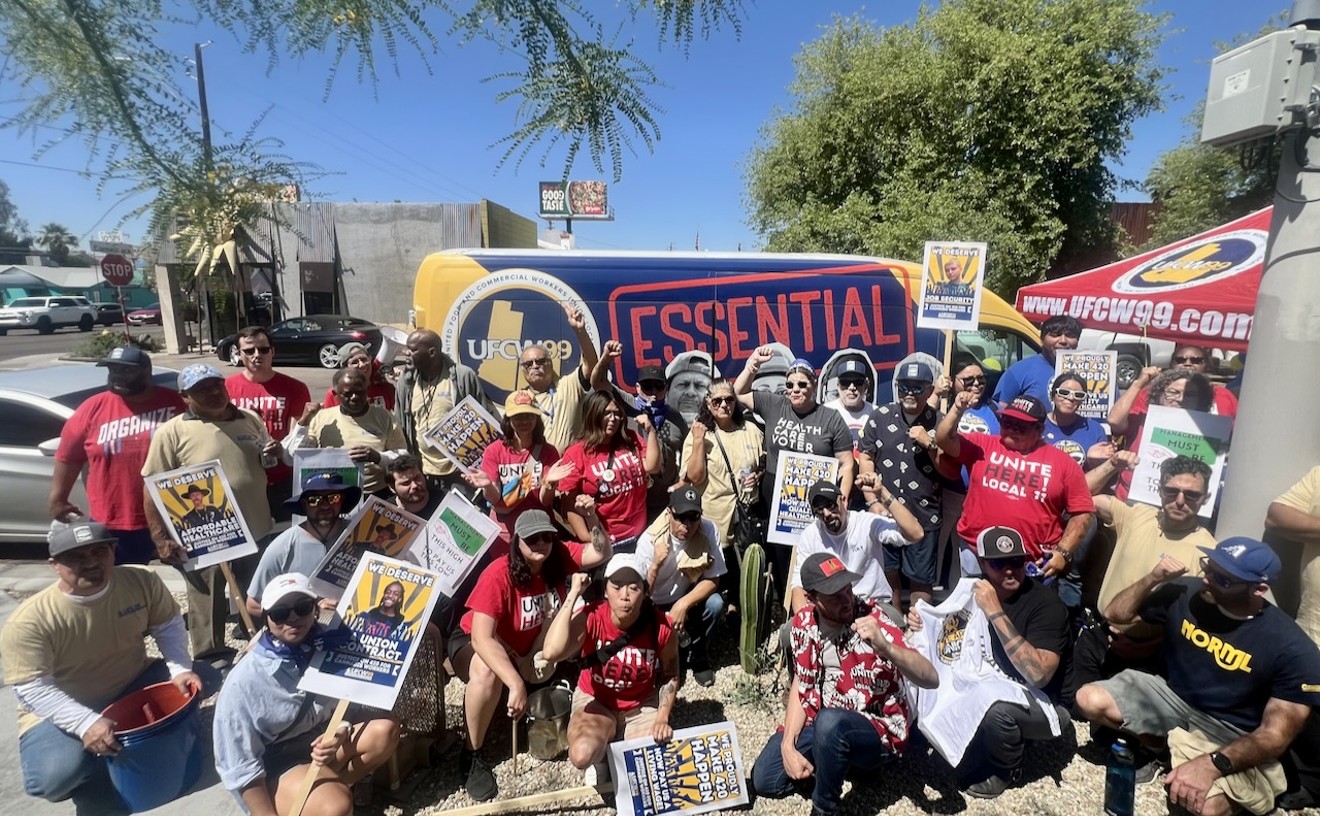Marshall Crenshaw, however, is the exception that proves the rule, and one of the true worthy inheritors of power pop's glistening legacy. Over a career that's covered more than two decades, Crenshaw has managed not only to find his own voice in the music of his elders, but to successfully tinker with the format of power pop, bringing to it his passion for rockabilly, soul and the rock 'n' roll of the pre-Beatles era. Because he made his arrival in the late '70s, at the tail end of punk (or, if you prefer, during the arrival of New Wave), Crenshaw initially was lumped in with the pegged-pants/skinny-tie mob. But his body of work -- 10 albums, a handful of singles, and numerous compilation and soundtrack appearances -- reveals a vision that encompasses far more than mere knockoffs of the Beatles and Buddy Holly.
Proof of Crenshaw's genius is scattered throughout The Best of Marshall Crenshaw: This Is Easy, a catalogue skim-job issued by Rhino Records that, despite some major flaws and gaffes, provides a decent introduction to the man's canon. Too many fine songs are missing to be anything close to definitive -- blame Crenshaw for that, as he co-produced the thing -- but at least it establishes his unique voice within power pop, from his ability to write about women with compassion and understanding to his grasp of nearly everything great in rock history.
His debut single is here, 1982's "Something's Gonna Happen," a vibrant, enthusiastic blast of lo-fi pop that was a nice warm-up for his brilliant first album, Marshall Crenshaw, and its Top 40 hit "Someday, Someway." That song was both a perfect single and power pop in its quintessence: tingly, buoyant, bristling with nervous sexual energy wrapped around an irrefutable hook. The non-LP flip side was just as good: "You're My Favorite Waste of Time," a home-recorded one-man homage to the big-boom pop of Phil Spector. The album offered much more, including the Spectorized "Cynical Girl"; a hot-wired rockabilly rave-up ("The Usual Thing," featuring some fine slapping upright bass from future Bob Dylan bassist Tony Garnier); and a slew of well-crafted little gems that borrowed from the likes of Del Shannon, Buddy Holly, Bobby Fuller, and Arthur Alexander (via a terrific cover of "Soldier of Love").
Crenshaw followed his debut record with 1983's Field Day, a front-to-back masterpiece boasting thunderous production by Steve Lillywhite, a shoulda-hit in "Whenever You're on My Mind," and Crenshaw's finest collection of material. That the album flopped will forever remain a mystery. Critics pooh-poohed the somewhat heavy-handed sound of the album, but no one listens to critics, do they? Maybe it was just a sign of the times: In 1983, electro-pop had pretty much taken over the airwaves, and Crenshaw had little in common with MTV darlings such as Men Without Hats, A Flock of Seagulls, and Duran Duran. Whatever the case, Field Day remains the greatest power-pop commercial dud this side of Big Star's Radio City.
By 1985's Downtown, Crenshaw's faith in romance had begun to sour a bit, with songs such as "The Distance Between," "Lesson Number One" and "Like a Vague Memory" exploring love's thorny underbelly. His rock 'n' roll heart was still alive, though, as evidenced on the exuberant "Little Wild One (No. 5)," "Terrifying Love" and the thumping "(We're Gonna) Shake Up Their Minds." Sadly, Downtown was Crenshaw's last genuinely great long-player; the albums that followed all have their moments, but mostly they find Crenshaw settling a bit too comfortably into the role of power-pop journeyman. This Is Easy salvages some of the treasure from lesser albums such as Good Evening and Life's Too Short, but it also shortchanges much of Crenshaw's legacy: Too many good songs are missing, too many choice rarities omitted, and there's no trace of the man's exquisite taste in covers, through which he has feted the Jive Five, Harry Nilsson, Webb Pierce, Merle Haggard, Buddy Holly, Hank Mizell, and Chris Knox, among others.
Fortunately, Rhino also has issued a stunning repackaging of Marshall Crenshaw, with about a half-hour's worth of B-sides ("You're My Favorite Waste of Time," plus the near-hard-rock gem "Somebody Like You") and a slew of live stuff, including some roaring soul covers and a blistering "Brand New Lover" that's tucked away as a hidden bonus track. As for the album itself, Marshall Crenshaw's 12 tracks are the embodiment of power-pop perfection, a transcendent ode to the thrills of young love, the perils of heartbreak, and the cathartic joy of voices, melodies, rhythms and guitars melding into so many slices of three-minute rock 'n' roll heaven.










